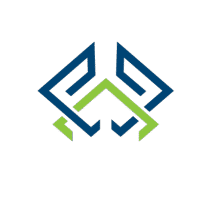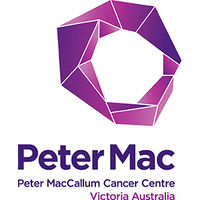预约演示
更新于:2025-05-07
IRF4
更新于:2025-05-07
基本信息
别名 Interferon regulatory factor 4、IRF-4、IRF4 + [5] |
简介 Transcriptional activator. Binds to the interferon-stimulated response element (ISRE) of the MHC class I promoter. Binds the immunoglobulin lambda light chain enhancer, together with PU.1. Probably plays a role in ISRE-targeted signal transduction mechanisms specific to lymphoid cells. Involved in CD8(+) dendritic cell differentiation by forming a complex with the BATF-JUNB heterodimer in immune cells, leading to recognition of AICE sequence (5'-TGAnTCA/GAAA-3'), an immune-specific regulatory element, followed by cooperative binding of BATF and IRF4 and activation of genes (By similarity). |
关联
7
项与 IRF4 相关的药物靶点 |
作用机制 IRF4抑制剂 |
非在研适应症- |
最高研发阶段临床1期 |
首次获批国家/地区- |
首次获批日期1800-01-20 |
作用机制 EP300抑制剂 [+1] |
在研机构 |
原研机构 |
在研适应症 |
非在研适应症- |
最高研发阶段临床前 |
首次获批国家/地区- |
首次获批日期1800-01-20 |
作用机制 IRF4抑制剂 [+1] |
在研适应症 |
非在研适应症- |
最高研发阶段临床前 |
首次获批国家/地区- |
首次获批日期1800-01-20 |
2
项与 IRF4 相关的临床试验NCT04398485
A Phase 1 Study of ION251 Administered by Intravenous Infusion to Patients With Relapsed/Refractory Multiple Myeloma
The purpose of this study is to determine the maximum-tolerated dose (MTD) and recommended Phase 2 dose (RP2D) of ION251 in patients with relapsed/refractory multiple myeloma.
开始日期2021-01-20 |
申办/合作机构 |
NCT02468687
A Phase I, Open Label Dose Escalation Trial of Orally Administered N-methyl-pyrrolidone (NMP) in Patients With Relapsed or Refractory Myeloma
The study will evaluate if the N-methyl-pyrrolidone (NMP) can be safely administered to humans at doses, which induce measurable immunological and anti-tumour effects in patients with myeloma who are resistant to or intolerant of lenalidomide and bortezomib.
开始日期2015-08-20 |
100 项与 IRF4 相关的临床结果
登录后查看更多信息
100 项与 IRF4 相关的转化医学
登录后查看更多信息
0 项与 IRF4 相关的专利(医药)
登录后查看更多信息
2,098
项与 IRF4 相关的文献(医药)2025-12-01·Immunogenetics
Uncovering selection pressures on the IRF gene family in bats’ immune system
Article
作者: Ortega, Jorge ; Gutierrez, Edgar G
2025-07-01·Clinical Immunology
Allogeneic hematopoietic stem cell transplantation in a patient with combined immunodeficiency caused by IRF4 mutation
Article
作者: Wang, Hongsheng ; Qian, Xiaowen ; Wang, Xiaochuan ; Zhai, Xiaowen ; Sun, Jinqiao ; Wang, Ping ; Jiang, Wenjin
2025-06-01·Chemico-Biological Interactions
Histone lactylation-augmented IRF4 is implicated in arsenite-induced liver fibrosis via modulating Th17 cell differentiation
Article
作者: Cheng, Cheng ; Wang, Hailan ; Wu, Meng ; Xia, Haibo ; Xie, Daxiao ; Bu, Ning ; Liu, Qizhan ; Zhou, Yuanzhong ; Wang, Peiwen ; Lin, Jiaheng ; Xie, Yan ; Chen, Weiyong
69
项与 IRF4 相关的新闻(医药)2025-04-20
·小药说药
-01-引言Treg细胞是CD4+T细胞的一个亚群,通过预防自身免疫、控制过度炎症和维持免疫耐受,对免疫稳态至关重要。Treg细胞的免疫调节特性在癌症中会促进肿瘤的进展。对TIL亚群的分析表明,免疫细胞浸润的组成与患者预后之间存在明确的关联。过表达细胞毒性T细胞的TIL通常与良好的预后相关,而TIL中Treg细胞的频率增加与不良预后相关。Treg细胞的分化和功能依赖于谱系特异性转录因子Foxp3的表达。FOXP3基因功能丧失改变的人类患有免疫失调、多内分泌疾病、肠病、X连锁(IPEX)综合征,表现为广泛的自身免疫和炎症损伤。Treg细胞在胸腺中由一组前体细胞发育而来,这是一个需要T细胞受体(TCR)和IL-2激活的两步过程。Treg细胞可以通过各种不同的机制抑制免疫反应。CD25是IL-2受体的一种高亲和力亚单位,在Treg细胞上组成性高表达,但在效应T细胞上也上调。Treg细胞上高水平表达的CD25竞争性地结合IL-2,从而剥夺效应T细胞的这种专性生长因子。Treg细胞还表达一系列抑制分子,如CTLA-4,与Treg介导的抑制有关。此外,Treg细胞还可以分泌抑制性细胞因子,如IL-10和TGF-β。基于这些有效的免疫抑制机制,Treg细胞通常被认为是最有效的抗肿瘤免疫抑制剂。因此,以Treg细胞为靶点的癌症治疗策略也是目前的研究热点。-02-一、Treg的分类和功能Tregs可分为两类:天然调节性T细胞(nTregs)和诱导调节性T细胞(iTregs)。两种类型的Tregs都普遍表达 Foxp3。nTregs在胸腺中自然发育,其抑制作用是通过细胞间接触实现的,它们的主要功能是维持正常的免疫耐受和控制炎症反应。iTregs来源于肿瘤微环境信号诱导的外周原始T细胞,包括肿瘤抗原、细胞因子(如TGF-β)和其他可溶性分子。iTregs通过多种促进肿瘤进展的机制抑制效应T细胞(Teff)、NK细 胞和DC的抗肿瘤免疫作用。Tregs主要有以下五种功能机制:①Tregs分泌抑制性细胞因子,包括 IL-10、TGF-β 和 IL-35。② Tregs 通过颗粒酶和穿孔素杀死效应细胞。③ Tregs 影响效应细胞的功能:Treg 与效应T细胞竞争消耗 IL-2,从而抑制效应T细胞的生长;Tregs通过产生胞外酶CD39和CD73 促进TME中腺苷的产生,诱效应细胞导的抑制和抗增殖作用;Tregs通过缝隙连接将大量 cAMP 转移到效应T细胞,干扰其代谢。④Tregs通过刺激性和抑制性受体(CTLA-4 或 LAG3)诱导DC耐受,后者通过IDO进一步抑制T细胞的能力。⑤MDSCs和Tregs 产生的因子形成正反馈环,促进增殖,增强抑制环境。 此外,一项研究使用一种新的策略来定义Tregs, Th1样Tregs(T- 234bet+IFNγ+Foxp3+),Th2 样Tregs(Gata3+IRF4+IL4+Foxp3+)和Th17样Tregs(IL-17+RORγt+Foxp3+),这为靶向 Tregs 治疗提供了新思路。 -03- 二、Treg抑制抗肿瘤免疫反应的机制Treg通过多种机制阻碍抗肿瘤免疫反应。在Tregs中,共抑制受体细胞毒性T淋巴细胞抗原4(CTLA-4)通过与APCs中的CD80/B7-1和CD86/B7-2结合干扰共刺激信号,从而抑制效应T细胞中的共刺激受体CD28。 IL-2是Treg和效应T细胞生存所必需的细胞因子。与效应T细胞相比,Treg主要通过由α(CD25)、β(CD122)和γ(CD132)亚单位组成的更高亲和力受体结合IL-2。此外,Tregs比效应T细胞具有更高的CD25表达,而CD25是IL-2的一种高亲和力受体。这使得Treg在利用TME中有限的IL-2方面具有竞争优势。因此,在TME中,Treg的累积量大于效应T细胞。同时,Treg还分泌免疫抑制分子(包括免疫抑制细胞因子)抑制抗肿瘤免疫。Treg产生TGF-β、IL-10和IL-35导致免疫抑制。表达在Tregs细胞表面的CD39和CD73作为外核苷酸酶,分别将ATP或ADP水解为AMP和AMP水解为腺苷。CD39和CD73产生的腺苷会抑制效应T细胞。当Treg在TME中发生凋亡时,凋亡的Treg通过外核苷酸酶释放大量腺苷,从而产生更强的抗肿瘤免疫抑制。-04-三、TME中Treg浸润的机制趋化因子和细胞因子依赖性浸润Treg具有多种趋化因子受体。趋化因子梯度,如CCR4-CCL17/22,CCR5-CCL5, CCR8-CCL1,和CCR10-CCL28,可参与将Treg招募到TME中。 在炎症肿瘤中,炎症细胞产生Treg招募趋化因子,如CCL22。CCR8+Treg被CCR8配体(如CCL1和CCL18)招募到TME等炎症部位,CCL1不仅将CCR8+Treg招募到肿瘤中,还诱导对Treg抑制至关重要的FOXP3、CD39和IL-10的STAT3依赖性上调,从而增强Treg的免疫抑制活性。在一系列细胞因子和趋化因子受体中,与正常组织驻留的Tregs相比,CCR8仅在人类乳腺癌的肿瘤浸润性Tregs中显著上调,表明CCR8是TME中Tregs的一个有希望的治疗靶点,而不会引起系统性自身免疫。基于TME代谢适应的生存优势效应T细胞和Treg在正常和炎症条件下使用不同的代谢系统,Treg表现出更强的生存优势。TCR刺激通过磷酸肌醇3-激酶(PI3K)-雷帕霉素(mTOR)信号途径激发特定的代谢程序,导致氨基酸和葡萄糖的吸收增加,从而增强有氧糖酵解。活化的效应T细胞将其代谢程序从氧化磷酸化(OXPHOS)转变为有氧糖酵解,这是其生存和功能所必需的,从而导致效应T细胞和TME中的肿瘤细胞之间的葡萄糖竞争。肿瘤细胞中的代谢重编程将TME转变为营养受限,富含乳酸和低氧环境,不利于效应T细胞的存活和功能。然而,在TME中,Treg可以在如此恶劣的条件下存活并保持其免疫抑制功能。FOXP3通过抑制糖酵解和促进氧磷和烟酰胺腺嘌呤二核苷酸(NAD+)氧化,因此,Treg可以利用乳酸作为能量来源。当肿瘤浸润性非Treg将丙酮酸转化为乳酸以产生NAD+以维持糖酵解时,TME中的Treg将丙酮酸转化为线粒体中的乙酰辅酶a以触发三羧酸循环,这为Treg提供了比其他T细胞更大的存活益处。此外,即使在低葡萄糖条件下,Treg还可以利用脂肪酸实现其增殖和免疫抑制功能。研究发现,胃癌中RHOA Y42突变通过上调脂肪酸合成酶(FASN)产生大量脂肪酸,导致TME中更多的Treg和更少的肿瘤浸润性CD8+T细胞。非炎症肿瘤的浸润机制虽然炎症肿瘤通常含有Treg,但有时在非炎症肿瘤中也检测到大量Treg,这表明炎症相关浸润以外的机制参与了Treg向TME的募集。研究发现,某些基因改变可以通过调节下游信号通路来修饰肿瘤细胞产生趋化因子。在肺腺癌中发现的EGFR突变通常与非炎症性肿瘤相关,在这些肿瘤中检测到大量的Treg,而不存在炎症细胞。EGFR突变通过抑制IFN调节因子1(IRF1)减少CXCL10的产生,这对CXCR3依赖的CD8+T细胞向TME的募集产生负面影响。此外,CCL22的产生通过EGFR下游信号中的JUN诱导而增加,导致CCR4依赖性Treg浸润到TME。在具有RHOA Y42突变的胃癌中也观察到类似的表型,RHOA Y42突变是一种功能缺失突变,通过抑制IRF1降低CXCL10/11水平。此外,粘着斑激酶的过度激活通过调节趋化因子的产生与Treg浸润和CD8+T细胞排斥相关。治疗相关的Treg积累放射治疗和CTLA-4阻断抗体等治疗可能促进肿瘤中Treg的积累,这被认为是一种适应性免疫抵抗机制。由于对辐射的敏感性低于其他淋巴细胞,因此即使在放射治疗后,Treg仍在TME中持续存在,可能导致某些类型癌症发生免疫抑制性TME。在临床前模型中,去除Treg可提高肿瘤对辐射的敏感性并抑制转移。在小鼠模型中,抗CTLA-4抗体通过抗体依赖性细胞毒性(ADCC)有效地去除Treg,而在患者中的作用机制仍存在争议。免疫组化分析显示,根据治疗前和治疗后活检样本的比较,抗CTLA-4抗体治疗后,Treg数量增加。因此,某些治疗干预可能会增强Treg浸润,从而影响后续治疗的疗效。-05-四、Treg作用的新机制新的代谢机制Tregs活化的核心是支持其生存和功能的脂质代谢的变化,这可由脂肪酸结合蛋白(FABPs)促进。此外,糖酵解和氧化代谢都有助于Tregs的扩增,因为肿瘤内Tregs在葡萄糖摄取方面的相对优势可能促进FA合成。Tregs表现出另外一种独特的代谢特征是线粒体代谢的增加。线粒体转录因子A(Tfam)和线粒体复合体III是维持Tregs免疫抑制功能调节基因表达所必需的。此外,Foxp3缺乏会导致mTORC2信号转导的失调,并增强有氧糖酵解和氧化磷酸化。值得注意的是,CD36在肿瘤内的Tregs中被选择性上调,作为一种中枢代谢调节剂。CD36通过PPARβ信号精细调节线粒体适应性,重编程Tregs以适应富含乳酸的TME。在抗PD-1治疗过程中,CD36靶向诱导了额外的抗肿瘤反应。肝激酶B1(LKB1)调节Tregs的代谢和功能适应度,并作为DCs免疫原性的关键抑制剂发挥作用。在Tregs中,LKB1的特异性缺失可导致一种以Th2型显性反应过多为特征的致命性炎症性疾病,不仅破坏Tregs的生存、线粒体适应度和代谢,还可诱导免疫调节分子的异常表达,包括PD-1和TNF受体超家族蛋白的GITR和OX40。新的遗传机制Helios可以增强人类胎儿CD4+幼稚T细胞向Tregs的优先分化,作为在炎症反应期间稳定Tregs的关键转录因子。肿瘤中Helios缺陷的Tregs获得效应T细胞功能,并通过上调对自身抗原具有高度亲和力的效应细胞因子来促进对癌症的免疫反应,如GITR/PD-1表达增加和对自身抗原的反应性增强。Foxp1是一种forkhead转录因子,Foxp1的缺失会导致Tregs的功能受损,TSDR、CNS2、CNS3均为Foxp3相关的作用元件,调控着Foxp3的表达和功能。YAP是Hippo通路的辅活化因子,在Tregs中高度表达,并促进Foxp3的表达和功能。TAZ是一种诱导Hippo信号转导的TEAD转录因子的辅激活因子,它通过减少组蛋白乙酰转移酶Tip60介导的Foxp3的乙酰化而减弱Tregs的发育。核受体Nr4a是维持Treg基因程序的关键转录因子,参与Treg介导的TME抗肿瘤免疫抑制。促自噬蛋白AMBRA1也是T细胞的一个关键调节因子。此外,SUMO特异性蛋白酶3(SENP3)介导的BACH2去SUMO化阻止BACH2的核输出,从而抑制与CD4+T效应细胞分化相关的基因,并稳定Treg特异性基因特征。新的分子机制在Tregs的分子机制方面也取得了一些新的进展。Tregs具有丰富的IL-2受体(IL-2R)表达,依赖于活化T细胞产生的IL-2,提示Tregs对IL-2的消耗与其抑制功能有关。并且IL-2R依赖的转录因子STAT5的激活在Tregs的抑制功能中起着重要作用。丝氨酸-苏氨酸激酶Mst1被鉴定为Tregs中IL-2-STAT5活性的信号依赖性放大器,Tregs中Mst1和Mst2的高活性对于防止肿瘤抵抗和自身免疫是至关重要的。在T细胞活化过程中,Tregs中Foxp3的磷酸化可以通过TAK1 Nemo样激酶(NLK)信号通路进行调节。另外,Tregs激酶TAK1的特异性缺失可以减少外周淋巴器官中Tregs的数量,而E3泛素化连接酶TRAF6缺乏的Tregs在体内功能紊乱。ST2被认为是IL-33的唯一受体,表达ST2的Tregs对IL-33有反应,并且在IL-33刺激下Tregs的百分比增加,特别是Foxp3+GATA3+Tregs。在结直肠癌(CRC)的小鼠模型中,肿瘤浸润的Tregs优先上调ST2,IL-33/ST2信号与肿瘤负荷呈正相关。激活的Tregs表面表达糖蛋白-A为主的重复序列(GARP),它结合并激活潜伏的TGF-β。此外,整合素α4β1的激活也可增加Tregs的抑制能力。Tregs稳态通过Tregs内在和外在机制与黏膜相关淋巴组织1(Malt1)功能密切相关。相比之下,CARD11-BCL10-MALT1(CBM)信号对于以Malt1蛋白酶依赖的方式介导Tregs的抑制功能至关重要。-06-五、Treg靶向治疗策略抗CTLA-4单克隆抗体,如ipilimumab,通过Treg靶向改善TME的免疫特征。然而,在临床研究中的详细作用机制仍然存在争议。在小鼠模型中,抗CTLA-4单克隆抗体诱导的抗肿瘤免疫反应完全依赖于通过Fc介导的ADCC对Treg的消耗。而在人类中,Treg的消耗与伊普利单抗抗肿瘤的主要疗效无关。此外,靶向肿瘤内Tregs高表达分子的双特异性抗体,如CTLA-4和OX-40或CTLA-4和GITR,它们可能通过有效地消耗体内的Treg来提高抗肿瘤疗效。由于肿瘤内Treg比其他效应T细胞表达更高水平的CD25,CD25可能是Treg耗竭的关键靶点。一些针对CD25的治疗策略已经被FDA批准。例如,IL-2与白喉毒素的融合蛋白denileukin diftitox用于皮肤T细胞淋巴瘤。denileukin diftitox可与表达CD25的细胞结合,并通过白喉毒素的细胞毒性作用杀死它们。新的抗CD25抗体RG6292被开发用于选择性地清除Tregs,而不会干扰效应T细胞中的IL-2信号,目前正在进行临床评估(NCT04158583)。靶向CD25的近红外光免疫治疗(NIR)也可能是肿瘤局部Treg去除的一种有希望的方法。此外,还开发了ADCT-301,一种抗CD25的抗体偶联药物,用于靶向表达CD25的淋巴瘤。它业可作为另一种在肿瘤中去除Tregs的选择,目前正在进行临床试验(NCT03621982)。 通过Tregs表达的外核苷酸酶CD39和CD73靶向腺苷途径也可能是增强抗肿瘤免疫的一个有希望的靶点。阻断外核苷酸酶活性的抗CD39和抗CD73抗体,如TTX-30、MEDI9447和BMS-986179,目前正在进行临床试验(NCT03884556、NCT03742102和NCT02754141)。除了抑制腺苷的产生外,腺苷受体A2AR的小分子抑制剂也可防止腺苷依赖性T细胞抑制。这些抑制剂的临床试验正在进行中(NCT02655822、NCT04089553和NCT02403193)。此外,靶向VEGFA-VEGFR2轴可能通过减少TME中的Treg增殖和浸润来激活抗肿瘤反应。已经证明,抗VEGFR2抗体ramucirumab可以减少胃癌患者eTreg的增殖。以FOXP3为靶点的疗法也有开发。AZD8701是FOXP3的反义寡核苷酸,在体外实验和人源化小鼠模型中部分降低了FOXP3及其下游转录分子的表达。AZD8701的临床试验正在进行中(NCT04504669)。抗CCR4抗体mogamulizumab可减少实体瘤患者中CCR4+Treg的数量。在一项临床试验中,mogamulizumab联合抗PD-1抗体(nivolumab)治疗的患者中证实了Treg的缺失,这表明该组合是癌症免疫治疗组合中一个有希望的选择。由Treg高度表达的免疫检查点分子,如OX40、GITR和ICOS,也可能成为治疗靶点。一些研究表明,这些受体的刺激降低了Treg的免疫抑制功能,导致效应T细胞的激活。作为OX40激动剂的抗体,如MEDI6469134(NCT02274155),GITR,如MK-4166135(NCT02132754),以及ICOS,如KY1044136(NCT03829501),目前正在开展临床研究。-07-结语在炎症和非炎症肿瘤中,TME中Treg浸润、激活和存活的多种机制都已被揭示,影响TME中Treg浸润、激活和存活的机制可能因患者而异。肿瘤细胞中的基因改变不仅决定免疫原性和炎症状态,而且也有助于调节TME中的免疫细胞浸润和生存,例如基于趋化因子的Treg浸润和基于代谢变化的Treg激活,这些都可以被特异性激酶抑制剂靶向。因此,TME中主要导致Treg浸润的机制需要通过基于基因改变的免疫学和代谢谱来表征,并以精准免疫治疗为目标。基于机制的Treg靶向治疗有望改善目前的免疫治疗。参考资料:1.Development of Bispecific Antibody for CancerImmunotherapy: Focus on T Cell Engaging Antibody. Immune Netw. 2022 Feb; 22(1): e4.2. A pivotal decade for bispecific antibodies?. MAbs. 2024 Jan-Dec;16(1):2321635.公众号内回复“ADC”或扫描下方图片中的二维码免费下载《抗体偶联药物:从基础到临床》的PDF格式电子书!公众号已建立“小药说药专业交流群”微信行业交流群以及读者交流群,扫描下方小编二维码加入,入行业群请主动告知姓名、工作单位和职务。
免疫疗法细胞疗法临床研究
2025-04-07
·精准药物
药物研发是一项复杂且耗时的工程,传统上依赖于药物开发人员的经验和试错性实验。人工智能(AI)技术的出现,尤其是新兴的大语言模型和生成式AI,有望带来巨大的变革。将AI驱动的方法整合到药物开发流程中,已经在该过程的效率和有效性方面带来了细微但意义深远的提升。本文概述了AI应用在整个药物开发工作流程中的最新进展,包括疾病靶点的识别、药物发现、临床前和临床研究,以及上市后监测。最后,我们批判性地审视了当前存在的挑战,以突出AI增强药物开发领域中充满希望的未来研究方向。药物开发是一个旨在开发治疗疾病的新药物的多方面过程。它涉及多个阶段,包括靶点识别、药物发现、临床前研究、临床试验、监管审批和上市后监测。药物开发目前面临诸多挑战,包括高昂的成本、漫长的周期和低成功率。平均而言,开发一种新药需要约26亿美元的巨额投资,并且可能需要12到15年才能完成。不幸的是,即使在临床试验阶段,新药的成功率也低于10%。造成这种情况的原因有很多。从根本上说,疾病通常是复杂且多因素的,这给寻找有效的治疗方法带来了困难。药物开发过程本身也很复杂,涉及多个阶段,任何一个阶段的挫折都可能导致整个项目的失败。此外,在寻找潜在候选药物时需要探索的庞大化学空间估计在10^60到10^100的量级,这使得药物发现堪比大海捞针。最后,监管要求非常严格,达到安全性、有效性和质量标准可能是一项耗时且昂贵的工程。为了克服这些挑战,科学家们一直在积极探索新技术和方法来改进药物开发过程——而人工智能(AI)有望改变这一领域的现状。人工智能(AI)的最新进展,包括图像识别、自然语言处理(NLP)和计算机视觉,在解决药物开发的关键挑战方面展现了特别的潜力。特别是,诸如ChatGPT、DeepSeek、Grok和Gemini等大型语言模型(LLMs)以及诸如Sora等生成式AI,已经展示出在某些情况下超越人类智能的能力。人工智能处理海量数据的能力有望极大地加速和改进药物开发过程。因此,制药公司、生物技术公司和研究机构越来越多地采用AI驱动的方法来克服传统方法固有的障碍。人工智能已被证明在分析复杂的生物系统、识别疾病生物标志物和潜在药物靶点、模拟药物-靶点相互作用、预测候选药物的安全性和有效性以及管理临床试验(图1)等方面具有重要价值。然而,必须认识到,人工智能驱动的药物开发仍然面临一些独特的挑战。如果不能有效解决这些障碍,人工智能的潜力可能无法充分实现图1.药物研发管线中AI整合情况本综述探讨了自2019年以来人工智能在小分子药物开发中的最先进应用,在本综述中,我们首先描述了人工智能驱动的药物发现,从靶点识别到合成规划,以及人工智能在药物开发临床阶段的应用——包括生物标志物发现、药物再利用、药代动力学性质和毒性的预测以及临床试验的开展。最后,我们讨论了人工智能驱动的药物开发所面临的挑战,并概述了该领域的未来方向。我们希望能够阐明药物开发中创新、效率和精确度的新时代,这有望加速向患者提供新的和更好的药物。人工智能驱动的药物发现近年来,人工智能已成为药物发现领域的一股变革性力量,彻底改变了传统方法,并提高了整个过程多个阶段的效率。本节将探讨人工智能对药物发现各个方面的深远影响,包括靶点识别、虚拟筛选、从头设计、ADMET(吸收、分布、代谢、排泄和毒性)预测,以及合成规划和自动化合成与药物发现。通过利用先进的算法和技术,研究人员现在能够加速新治疗药物的发现,提高预测的准确性,并减少与药物开发相关的总体时间和成本。靶点识别小分子靶点(如蛋白质或核酸)的识别是药物发现中的一个关键过程。传统的亲和力拉下实验(Pull-down assay)和全基因组敲除筛选等方法被广泛使用,但往往耗时且劳动密集,失败率高。人工智能技术的进步正在通过分析复杂生物网络中的大型数据集,彻底改变这一领域。人工智能通过构建多组学数据网络,促进了疾病相关分子模式和因果关系的识别,从而推动了候选药物靶点的发现。例如,最近的研究利用自然语言处理技术(如word2vec嵌入)将基因功能映射到高维空间,提高了靶点识别的灵敏度,尽管基因功能重叠稀疏。然而,有效整合多组学数据并确保人工智能模型的可解释性仍然是具有挑战性的任务。图深度学习技术通过将图结构与深度学习相结合,专注于与关键特征(例如,原子类型、电荷)相关的图节点,有效地识别候选靶点,从而解决了这些问题。最近一项研究成功开发了一个使用带有图注意力机制的多组学网络图的可解释框架,以有效预测癌症基因。此外,将多组学数据与科学和医学文献整合到知识图谱中,使人工智能能够识别基因和疾病通路之间的关系。当生物医学大型语言模型与生物网络或知识图谱功能深度整合时,它们为连接疾病、基因和生物过程提供了高效而精确的方法。真实世界数据,如医疗记录、自我报告、电子健康记录(EHRs)和保险索赔,为理解复杂疾病和促进靶点发现提供了重要的背景信息。然而,真实世界数据通常包含非结构化文本,缺乏标准化,并且可能包含偏倚,这限制了它们在此背景下的应用。虽然高质量的、经过整理的数据集对于训练模型至关重要,但真实世界数据本质上是嘈杂的,并且由于多种疾病的汇合而变得复杂。尽管存在这些问题,最近的研究表明,嘈杂的真实世界数据仍然可以训练出有效的模型,从而提高了在嘈杂的医疗记录和非专家疾病标签场景中基因发现和候选药物靶点的潜力。增强模型在不同人群中的泛化能力仍然是一个重大挑战,特别是对于标签或患病率较低的疾病。随着真实世界和多组学数据的日益丰富,利用先进的数据挖掘算法和专家知识将进一步增强它们的整合,显著提高靶点发现的成功率。虚拟筛选虚拟筛选是高效识别潜在先导化合物或候选药物的关键策略。化合物库的快速扩张需要加速超大型库的虚拟筛选,这推动了配体对接人工智能技术的发展。基于人工智能的受体-配体对接模型可以预测配体的空间变换,使用诸如等变神经网络等算法直接生成复杂的原子坐标,并学习受体-配体距离的概率密度分布以生成结合姿势。值得注意的是,基于AlphaFold2和RosettaFold的最新受体-配体共折叠网络在直接从序列信息预测复杂结构方面显示出前景。然而,由于对物理约束的学习不足,它们可能产生不切实际的配体构象,因此需要进行后处理(例如,能量最小化)或几何约束来优化对接姿势的有效性。然而,在面向口袋的对接任务中,基于深度学习的结合姿势预测模型尚未超越基于物理的方法,并且它们通常没有充分考虑受体口袋的灵活性。此外,预测精确的受体-配体相互作用仍然是一个挑战。虽然早期机器学习在亲和力预测方面的成功激发了对深度学习模型的兴趣,并且这些模型可以通过处理三维结构和非结构数据来超越传统的评分函数,但它们的性能在很大程度上取决于配体姿势的准确性,并且主要适用于已知的受体结构。当靶点结构缺失或不完整时,直接应用基于对接的虚拟筛选是不切实际的。作为替代方案,人工智能技术可用于基于序列的预测方法。然而,这些方法通常难以捕捉三维蛋白质-配体相互作用的复杂性,从而使准确预测结合姿势变化如何影响相互作用强度变得复杂。虽然靶向药物开发对于明确的靶点是有效的,但许多疾病缺乏此类靶点。因此,对于靶点未明确的疾病(例如,罕见病)和广泛表型疾病(例如,衰老),基于表型的虚拟筛选至关重要。最近一项研究利用核形态和机器学习来识别诱导癌细胞衰老的化合物;类似的策略在抗生素发现方面也很有前景。然而,此类模型通常依赖于特定案例的表型数据,并且在泛化方面存在困难。此外,仅依赖于配体化学结构的人工智能活性预测面临数据稀疏和不平衡以及活性悬崖等挑战。最近的研究表明,整合细胞形态和转录谱等相关生物信息可以提高模型性能,为更准确的活性预测提供了新的方向。目前的虚拟筛选模型通常侧重于评分、姿势优化或筛选等特定任务,这强调了开发能够处理多项通用模型的需求。纳入归纳偏置(指模型优先考虑某些类型解决方案而非其他解决方案的固有趋势)或数据增强(指用于人为扩展训练数据集多样性而不收集新数据的技术)可能会提高模型的泛化能力。此外,商业化合物集合呈指数级增长至数十亿,这使得全面的筛选在计算上不可行。同时,可用的分子库仅覆盖了可成药化学空间的一小部分,而该空间仍在不断扩大——这为导航和筛选生物活性分子带来了机遇和挑战。为了应对这些挑战,诸如主动学习和贝叶斯优化等技术是解决化学空间搜索问题的有效方法,并成为提高虚拟筛选效率的关键。将量子力学与人工智能相结合,为化学空间探索提供了新工具,而分子动力学模拟则加深了对蛋白质-配体相互作用的理解,解决了结合亲和力和选择性问题,从而提高了模型准确性。同时,通过为特定靶点或化合物类型生成定制的虚拟库,深度生成模型大幅缩小了搜索空间,提高了筛选效率。例如,我们开发的条件循环神经网络生成了一个定制库,该库在细胞和动物模型中识别出了一种高效且选择性的RIPK1抑制剂。图2.AI分子生成流程从头设计从头药物设计涉及自主创建新的化学结构,以最佳方式满足所需的分子特征。传统的基于结构、基于配体和基于药效团的设计方法是手动的,依赖于专家设计师和明确的规则。人工智能,尤其是深度学习,实现了自动识别满足特定要求的新结构,绕过了传统的专业知识。这项技术已成功应用于开发通过湿实验室实验验证的小分子抑制剂、PROTACs、肽和功能蛋白,开创了一个更高效、更具创新性的药物发现时代。在深度学习驱动的从头设计(图2)中,分子生成组件是核心,通常使用化学语言或基于图的模型。化学语言模型将分子生成任务转化为序列生成,例如SMILES字符串(“简化分子输入线输入系统”,一种以线性文本格式表示化学结构的表示系统)。尽管需要大量的预训练,并且由于语法错误可能会产生无效的SMILES,但这些错误可以通过过滤不太可能的样本来帮助模型自我纠正。诸如长短期记忆模型(一种分析序列数据的深度学习模型)等模型面临信息压缩瓶颈,阻碍了全局序列属性的学习,这表明需要诸如Transformers等架构来更好地捕获全局属性。最近的研究将结构化状态空间序列集成到化学语言模型中,揭示了高化学空间相似性,并与关键天然产物设计特征对齐,证明了该模型在从头设计中的实用性。相反,基于图的模型将分子表示为图,使用自回归或非自回归策略生成结构。自回归方法逐个原子地构建分子,这可能导致化学上不合理的中间体并引入偏差。相比之下,非自回归方法一次生成整个分子图,但需要额外的步骤来确保图的有效性,因为这些模型对分子拓扑结构的有限感知可能会导致有缺陷的结构。针对类药化学空间的广阔性,从头生成通常使用基于指标(包括与已知活性分子的相似性和预测的生物活性)的评分函数等优化机制,引导设计朝着目标特征发展。纳入强化学习进行迭代优化是一种有效的方法,但设计合适的评分函数具有挑战性,因为直接量化合成可行性或类药性等目标很困难,通常会导致意想不到的后果。此外,强化学习的广泛优化步骤突出了样本效率方面的挑战,而主动或课程学习策略可能会缓解这些挑战。除了引入评分函数外,纳入约束条件——例如疾病相关基因表达特征、药效团、蛋白质序列或结构、结合亲和力以及蛋白质-配体相互作用——也可以引导模型生成所需的分子。例如, PocketFlow模型,以蛋白质口袋为条件,有效生成了针对HAT1和YTHDC1靶点的实验验证活性化合物,展示了其药物设计能力。此外,模型可以通过将输出限制在所需候选物的特定支架或片段上,来优化先导化合物,尽管这会以限制化学多样性为代价。ADMETADMET在确定药物疗效和安全性方面起着至关重要的作用。虽然市场批准需要湿实验室评估,并且不能完全被模拟所取代,但早期ADMET预测有助于减少因不良特性导致的失败。人工智能已成为使用预定义特征(如分子指纹或描述符)预测ADMET特性的有价值的工具。例如,拜耳的计算机模拟ADMET平台使用随机森林和支持向量机等机器学习技术,并使用环状扩展连接指纹等描述符,以确保准确性和相关性。过去几十年中,已经开发了用于ADMET预测的各种描述符。然而,这些基于特征的方法中涉及的特征工程仍然复杂,并限制了通用性和灵活性。深度学习现在推动着ADMET预测,从简单的输入数据中自动提取有意义的特征。各种神经网络架构,包括Transformers(旨在有效处理序列数据)、卷积神经网络(一种常用于图像和视频识别任务的深度学习模型)以及最近的图神经网络(用于处理图结构化数据(如分子结构)的深度学习模型),都擅长于从SMILES字符串和分子图等格式中建模分子特性。其中,SMILES字符串提供了紧凑的分子表示,并且可以清晰地表达分支、环和手性等子结构,但缺乏拓扑意识——而图神经网络(如GeoGNN模型)则纳入了几何信息,在ADMET预测中提供了卓越的性能。事实上,最近的一项研究表明,使用SMILES输入的Transformer模型在完整结构识别方面存在困难。对于涉及毒性等特性的预测,这些模型生成的表示的性能可能会在训练进展之前达到饱和,在训练后显示出有限的改进。尽管新型深度学习算法推动了进步,但该领域仍然面临挑战。高成本和大量时间投入导致ADMET预测中的标记数据稀缺,从而导致潜在的过拟合。无监督和自监督学习提供了解决方案,虽然基于大型Transformer的模型在其他领域显示出前景,但它们在ADMET预测中的应用仍未得到充分探索。最近一项研究表明,尽管SMILES语言不直接编码分子拓扑结构,但使用配备线性注意力机制的上下文Transformer进行精心设计的自监督训练可以有效地学习隐式结构-性质关系,从而增强了将大规模自监督模型应用于ADMET预测的信心。图3. AI驱动的药物合成预测此外,分子表示对于人工智能的性能至关重要。高维表示通常比低维表示提供更丰富的信息。然而,最近的研究表明,整合多层次的分子表示可以显著增强学习效果,从而产生更全面、更具泛化能力和更稳健的ADMET预测。这表明,同时使用多种表示的多模态ADMET模型具有潜力,尽管数据类型的最佳组合仍未解决。可解释性仍然是一个重大挑战。理解ADMET预测中的模型参数有助于揭示分子子结构和性质之间的关系。注意力机制(允许模型专注于输入数据的重要部分)可以通过识别关键原子或基团来增强可解释性。整合化学知识可以进一步增强可解释性,但扩展模型以实现全面的化学理解仍然具有挑战性。合成规划与自动合成和药物发现化学合成是小分子药物发现的瓶颈之一,是一项技术性强且极其繁琐的任务。计算机辅助合成规划(CASP)和有机化合物的自动合成有助于减轻化学家重复性繁琐工作的负担,使他们能够从事更具创新性的工作。随着人工智能的快速发展,制药行业和学术界对实现这一过程的智能化和自动化越来越感兴趣。CASP已被用作辅助化学家通过逆合成分析确定反应路线的工具,逆合成分析是一种问题解决技术,其中目标分子被递归地转化为越来越简单的先体(图3a)。早期的CASP程序是基于规则的(例如,应用于合成分析、化学合成模拟和评估的逻辑和启发式方法,以及基于逆合成的合成可及性评估程序)。此后,一系列机器学习技术,特别是深度学习模型,得到了发展——在人工小分子和天然产物的合成规划方面取得了逐步改进。最近,Transformer模型也被应用于逆合成分析、区域选择性(化学反应在具有多个可能反应位点的分子上优先发生在一个特定位置而不是另一个位置的偏好)和立体选择性(当存在多种立体异构体产物时,反应优先产生一种立体异构体而不是另一种立体异构体的偏好)的预测以及反应指纹提取。然而,对于复杂合成规划而言,纯粹数据驱动的人工智能方法的充分性问题,促使人们开发结合化学规则的混合专家-人工智能系统。然而,目前大多数深度学习方法都是不可解释的,显示为提供有限见解的“黑匣子”。为了应对这一挑战,最近引入了一种新的逆合成预测模型RetroExplainer,它具有可解释的深度学习框架,将逆合成任务重新定义为分子组装过程。与最先进的逆合成方法相比,RetroExplainer显示出卓越的性能。值得注意的是,其分子组装方法增强了可解释性,实现了透明的决策和定量归因。有机化合物的自动合成代表了化学相关领域(包括药物化学)的前沿领域(图3b)。一个最佳的自动化合成平台将无缝集成和简化化学开发过程的各个组成部分,包括CASP以及自动化实验设置和优化,以及机器人执行的化学合成、分离和纯化。最近,深度学习驱动的自动化流动化学和用于药物化合物合成的固相合成技术受到了相当大的关注。特别是,自动化合成与设计、测试和分析技术相结合,形成了药物发现的自动化中心过程,称为设计-制造-测试-分析(DMTA)循环。通过利用深度学习,DMTA循环的效率得到了显著提高,加速了药物发现的先导化合物的发现。例如,通过使用人工智能驱动的DMTA平台,利用深度学习进行分子设计和微流控进行芯片上化学合成,从头生成了肝X受体激动剂。此外,大型语言模型(LLMs)被认为“理解”人类自然语言,使自动化平台能够根据研究人员的简洁输入,为特定挑战提供量身定制的解决方案。尽管自动化合成和自动化DMTA循环具有广阔的前景,但它们的发展仍处于起步阶段。许多技术挑战仍然存在,包括减少固体形成以避免堵塞、预测非水溶剂和不同温度下的溶解度、估计最佳纯化方法以及优化多步反应的要求。在新药化合物的规划和合成之后,人工智能技术促进了新药作用机制(MOA)的体内验证。在高内涵筛选中,通过监测组学数据的实时变化,人工智能技术将这些特征进行泛化,并开发一个能够解读新化合物的分子和细胞MOA及其相关的药代动力学、药效动力学、毒理学和生物利用度特性的模型(图4)。图4.AI驱动的MOA预测临床试验和真实世界中的人工智能人工智能通过分析患者数据(包括基因信息、临床病史和生活方式因素),越来越多地指导临床试验的各个方面。将人工智能方法应用于此类数据有助于识别影响药物反应的生物标志物和患者特征,从而实现更高效、更具信息量的试验设计。通过优化患者选择、治疗方案和结果测量等参数,人工智能有潜力提高试验成功率,并加速候选药物向临床实践的转化。真实世界数据也提供了丰富的信息来源,人工智能应用可以从中预测不良事件、药物-药物相互作用和其他结果。以下各节将描述人工智能在药物开发临床阶段的关键应用。生物标志物发现生物标志物是用于客观测量和评估正常与病理过程以及治疗反应的生物学指标,在医学、生物技术和生物制药领域具有巨大的应用价值。然而,传统的假设驱动的生物标志物发现方法通常效率低下,并且无法全面解决疾病的复杂性。这些方法耗时且需要大量资源进行假设验证,而有限样本量的限制阻碍了在不同人群中的广泛验证。人工智能的最新进展极大地促进了生物标志物的发现。人工智能模型擅长识别诊断生物标志物,为临床病理学提供预测性见解和诊断参考。一个值得注意的例子是“nuclei.io”数字病理学框架,它将主动学习与实时人机交互相结合。这有助于通过基于核统计数据向病理学家提供精确反馈,高效构建用于各种外科病理学任务的数据集和人工智能模型,从而显著提高诊断准确性和效率。人工智能在识别对于预测疾病进展和患者生存至关重要的预后生物标志物方面也表现出色,从而实现靶向和个性化治疗。例如,深度学习模型可以将血样中的CD8+ T细胞形态描绘为有效的脓毒症预后指标,区分标记细胞衰老的核特征,并识别蛋白质组生物标志物以准确预测肝病结果。人工智能还可以预测各种癌症的预后生物标志物,提供用于生存、复发和转移的精确风险评分。值得注意的是,使用图神经网络的生存分析模型优于现有模型,有效区分了超出传统临床分级和分期的风险组——强调了人工智能在预后增强方面的潜力以及病理学家与人工智能之间关键的合作。在药物开发中,识别预测性生物标志物对于通过选择最有可能从治疗中获益的患者群体来提高研究成功率至关重要。这些发现需要严格的前瞻性临床验证。尽管基于人工智能的预测性生物标志物尚未应用于临床,但概念验证研究表明,人工智能可以通过预测已知的生物标志物来预测患者对治疗的反应。生物系统的复杂性需要将多种类型的生物学数据(包括蛋白质-蛋白质相互作用)整合到人工智能模型中,以进行更全面的预测。面对大型标记数据集的稀缺,研究人员正在部署各种策略来优化人工智能在生物标志物发现中的应用。来自多个来源的数据集整合显示出巨大的前景。来自可穿戴传感器的数字生物标志物也通过提供丰富的纵向数据集扩展了发现的范围。通过分子诊断、放射组学和组织病理学成像识别多模态生物标志物,为精准医疗提供了新的途径。此外,群体学习和自动化数据集处理管道为大规模、安全的数据收集奠定了基础。然而,人工智能模型在将其转化效率应用于临床试验时,面临着与异质性相关的挑战。一些研究利用深度学习来阐明细胞和组织水平的异质性以及肿瘤生态系统的多样性,为疾病亚型分类和患者分层提供了新的途径。可解释性和信任对于人工智能模型在临床上的接受度至关重要,可以通过整合先前的医学知识或将生物学关系嵌入神经网络来增强。解决人工智能驱动的生物标志物发现中的偏倚问题,需要跨地理上不同患者队列验证模型以及开发公平透明的算法等策略。稳健的验证和负责任的数据管理将促进生物标志物的识别和应用,支持未来的药物开发和疾病治疗。预测药效学性质应用人工智能和大数据工具可以有效解决药效学问题,并为事件时间分析提供强大的工具,特别是在处理高维数据和风险函数中的非线性关系时。人工智能通过优化剂量-反应关系、改善药物安全性概况和优化治疗窗口来支持个性化治疗,这些都是解决精准医疗中药效学问题的核心。对442种小分子激酶和2,145种不良事件的机器学习分析,发现了新的激酶-不良事件对,有助于风险缓解和更安全的小分子激酶抑制剂的开发。多组学变分自编码器(MOVE)框架整合多组学数据,揭示药物相互作用——例如二甲双胍与肠道微生物群之间的联系——并比较各种组学模式下的药物反应。PharmBERT,一种特定领域的语言模型,通过从处方标签中提取关键的药代动力学信息来增强药物安全性,有助于识别不良反应和药物相互作用。人工智能还通过分析遗传和生理数据来优化药物剂量,从而提供改善治疗效果的个性化治疗建议。此外,人工智能可以分析患者的遗传信息、生理特征和过去的治疗反应,为医生提供个性化的剂量调整建议,从而优化治疗效果。药物再利用除了新药发现外,人工智能还通过使用大规模生物医学数据集再利用现有的、已批准的药物,为药物库做出贡献,从而加速各种疾病的最佳治疗方案的开发。通过发现已批准药物以前未被识别的治疗特性,人工智能减少了与药物发现相关的时间和成本。例如,人工智能加速了2019年冠状病毒病(COVID-19)药物的再利用,突显了人工智能在为现有药物寻找全新应用方面的价值。人工智能还可以使用真实世界数据(包括电子健康记录和保险索赔)模拟临床试验,以促进药物再利用。例如,一种深度学习循环神经网络使用因果推理和深度学习分析医疗索赔数据库,有效识别潜在的候选药物。应用于数百万冠状动脉疾病患者的队列研究中,它精确地指出了增强治疗效果的药物和组合。另一种基于深度学习的药物再利用方法涉及将深度神经网络应用于组学数据,以根据药物在体外诱导的转录扰动将药物分类为治疗类别。一项研究利用了LINCS项目(https://lincsproject.org/)的扰动样本和来自MeSH的12个治疗类别,获得了高分类准确率——特别是在跨越各种生物系统和条件的通路水平数据方面——为药物重定位提供了潜力。特征归因技术与可解释的机器学习模型集成,增强了与协同药物反应相关的基因表达特征的识别。该策略已被证明可以提高特征的可解释性,并支持基于分子见解选择最佳的抗癌药物组合。此外,基于人工智能的高内涵筛选也可应用于药物再利用(图4)。开发了一种深度学习模型MitoReID,通过线粒体表型分析识别作用机制(MOA)。它为药物发现和再利用提供了一种经济高效的高通量解决方案,通过未见药物(不属于训练集)和体外验证进行了验证。通过分析570,096张细胞图像,MitoReID在识别美国食品和药物管理局批准的药物的作用机制方面达到了76.32%的准确率,并成功验证了茶中天然化合物表儿茶素的环氧合酶-2抑制作用。然而,人工智能驱动的药物开发的其他阶段中遇到的许多挑战也适用于药物再利用,包括数据质量、模型可解释性、泛化能力、验证成本、监管障碍、与现有流程的整合以及高计算需求等问题,这些都阻碍了广泛采用和实际应用。图5. AI在临床中的运用提高试验效率和预测结果临床试验通常成本高昂、耗时且效率低下,大多数试验在注册时面临延误或难以找到足够的志愿者。人工智能有潜力优化试验设计、简化招募和预测患者反应,提高试验效率和成功率,同时降低成本和时间。已经创建了一个先进的流程,整合多模态数据集,使用人工智能生成分子先导化合物,按疗效和安全性对其进行排序,并使用深度强化学习创建用于测试的可申请专利的类似物。它还通过估计副作用和通路激活来预测I/II期临床试验结果,提高预测准确性并识别药物组合中的潜在风险。在真实世界研究中,人工智能可以分析来自电子健康记录、保险索赔和可穿戴设备的数据,以评估药物的有效性和安全性(图5)。例如,一项使用真实世界数据和Trial Pathfinder工具的研究模拟了来自61,094名晚期肺癌患者的电子健康记录数据中的试验结果,结果显示放宽试验标准可以将符合条件的患者数量增加一倍,并改善生存结果。该方法已在各种癌症中得到验证,支持更具包容性和安全性的试验。Unlearn.ai探索的数字孪生技术可以缓解寻找符合纳入标准的合适患者的挑战。该技术创建参与者的虚拟副本,允许他们作为对照组,从而增加实验组的参与者数量并提高试验效率。Unlearn.ai在2020年4月获得了1200万美元的资助以推进该应用,而Novadiscovery和Jinkō等其他公司正在为肺癌等疾病进行基于数字孪生的临床试验模拟。所提出的方法使用基于基因表达和临床数据的计算机建模,结合深度学习和生成对抗网络。通过利用各种健康指标,这些数字孪生技术提供了对重要过程的定量见解,提供了动态的健康指导并优化了治疗策略。该方法旨在加深对生物学机制的数学理解,彻底改变临床实践并完全个性化医疗保健,例如,通过生成基于药物输入的预测生存概率的患者特异性模型。这些模型还可以模拟临床试验并优化试验参数,从而提高成功率。但它们也存在挑战,包括高计算成本、复杂的流程集成、伦理问题和有限的个性化。这些问题影响了患者模拟的准确性、试验设计和监管接受度,从而减缓了创新。除了药物开发的临床试验阶段,人工智能还可以分析上市后监测数据,以支持药物的安全性、有效性和质量。开发和同时使用替代方法,以便在监管审查过程的早期识别和解决安全问题,对于推进监管科学和优化药物开发至关重要。挑战尽管取得了进展,但目前尚无人工智能开发的药物进入III期临床试验,这突显了药物开发的复杂性。一个关键挑战是缺乏高质量的训练数据,这归因于高昂的获取成本、隐私法规和有限的数据共享——特别是对于罕见疾病或新型药物靶点——这阻碍了人工智能在识别靶点、生物标志物和其他功能方面的有效性。此外,现有数据通常存在信息缺失、错误和偏倚,进一步降低了人工智能的可靠性。药物发现实验可能产生不一致的结果,而节约成本的措施可能导致数据不完整。此外,文献中“阴性”数据(例如,不成功的实验和阴性试验结果)的代表性不足,阻碍了对药物-靶点-疾病相互作用、疗效和其他临床特征的全面理解。药物设计中的一个关键挑战是在成功的多重目标之间取得平衡。当前的研究通常过于关注化学空间,而忽略了其他关键因素(如成药性和合成可及性)。尽管多目标设计方法正在改进,但开发有效的评分函数(例如,亲和力预测和生物活性)仍然复杂,并且需要大量的实验。缺乏标准化的评估流程进一步使模型评估变得复杂,尤其是在出现相互冲突的目标时,例如在实现结构新颖性的同时最大化与已知生物活性分子的相似性。尽管存在MOSES和Guacamol等基准测试平台,但尚未就最佳实践达成共识。适当的分子表示是生成模型中的关键。SMILES和图等传统方法很常见,并且正在被分层分子图自监督学习等新兴的数据驱动方法所补充。然而,捕捉复杂性和确保合成可及性是困难的。目前评估合成可行性的方法通常不精确,导致发现不可合成的分子。将反应知识整合到分子生成中显示出前景,但仍需要改进。模型可解释性、生成新分子的不确定性以及偏倚等问题已成为学术界关注的焦点。将偏倚控制与不确定性估计有效整合对于提高生成分子的质量至关重要。人工智能在缺乏合适结合位点的所谓“不可成药”靶点方面面临挑战,包括某些无序蛋白质、转录因子(如MYC和IRF4)以及蛋白质-蛋白质相互作用。探索其构象空间并识别配体结合位点的新人工智能方法和高内涵筛选(图4)可能有助于克服这些障碍。最后,算法和计算能力的技术挑战限制了人工智能在药物开发中的应用。药物开发中使用的许多人工智能算法都是为其他领域设计的,可能并不完全适用;例如,需要基于自然语言处理的新算法来捕捉三维空间相互作用。此外,人工智能方法所需的高计算资源构成了障碍,特别是对于小型研究团队。与云提供商合作并开发更高效的算法有助于解决这些挑战。此外,由于周期长、成功率低和回报不确定,人工智能药物开发面临人才短缺和投资风险,影响了投资者信心。未来方向人工智能通过从复杂的多组学生物医学数据中提取关键见解,识别新的生物标志物并检测治疗靶点和异常,正在彻底改变药物开发过程,从而促进先导化合物和候选药物的发现。此外,人工智能加速了药物发现、再利用和毒性预测,从而降低了时间、成本和安全风险。然而,在这一领域充分实现人工智能驱动的进步的道路仍在进行中,需要克服许多挑战并实现潜力。未来为应对上述挑战所做的努力应特别强调以下几个关键方向。首先,开发解决人工智能驱动的药物开发中数据稀缺问题的新策略应是首要任务。增强数据共享、建立数据标准和开发新的人工智能算法(例如,能够从非常有限的数据中产生准确预测的“稀疏”人工智能方法)的可行策略至关重要。整合文本和化学信息的多模态预训练模型在解决数据稀缺问题方面显示出前景,尤其是在零样本场景中。通过整合基因组学、转录组学、疾病特异性分子通路、蛋白质相互作用和临床记录等一系列数据,人工智能还可以识别具有被忽视或罕见疾病潜在再利用机会的现有药物。当前的方法通常侧重于单一数据类型,从而错过了各种生物系统之间复杂的相互关系。建立有效的多模态融合方法可以从不同来源和格式中提取有价值的见解,以推进药物开发。随着大数据和基于图形处理器(GPU,而非传统的中央处理器,CPU)的GPU计算的兴起,人工智能现在可以应用于各种数据形式,包括文本、图像和视频。使用组学数据的新兴模型,包括基于深度学习的药物分类,在药物疗效预测、机制识别和毒性评估方面显示出前景,突显了多模态人工智能在药物开发中的未来潜力。许多当前的人工智能模型都是纯数据驱动的,由于相对缺乏足够高质量的数据,限制了它们在药物开发中的有效性。由于我们的生命系统都遵循物理学原理(也称为第一性原理),药物也无一例外地遵循物理定律的约束。将物理定律纳入现有的数据驱动人工智能算法是未来的研究方向,有助于减少数据依赖性,并提高这些模型的准确性和泛化能力。人工智能,尤其是大型语言模型(LLMs),可以通过分析大量文档并掌握最新要求,确保符合药物法规。这提高了效率,降低了不合规的风险,并防止了药物审批的延误。开发不仅准确而且可解释的人工智能模型,对于通过确保决策过程的透明度和理解,在药物开发人员、监管机构、临床医生和患者之间建立信任至关重要。这些模型可以尽早纳入,以优化项目资金并指导投资,从而加速药物开发。在未来几十年中,人工智能在医学建模和模拟中的作用将是变革性的。先进的人工智能模型将创建越来越详细的虚拟人体模拟,进一步增强我们对疾病机制、药物作用和个体生物学差异的理解。通过模拟,人工智能可以简化临床试验设计和执行,测试最佳选择标准的不同场景,以加速患者招募并提高试验的代表性。人工智能还将通过分析健康数据和基因组学,提供个性化的医疗决策支持,从而实现精确的风险预测、优化的治疗和改进的手术指导。医学教育将受益于人工智能驱动的虚拟现实,提供更真实的培训场景并提高医疗服务质量。结论总而言之,人工智能技术的不断进步正在显著提高药物开发的效率和成本效益。然而,必须认识到人工智能并非万能。人工智能技术的优势在于分析大型复杂数据并辅助快速决策,以补充人类功能和增强人类能力,但人工智能并非旨在完全取代人类的聪明才智或权威。人工智能设计的药物和预测的特性仍需要通过湿实验室实验进行验证,并且仍需要人类输入来确定人工智能研究和使用的方向。然而,鉴于人工智能不断增长的能力和进步的速度,以及包括最近的AlphaFold3在内的大型模型的开源,我们可以谨慎地对人工智能在加速药物开发和造福人类健康方面的前景保持乐观。参考文献:Zhang K, Yang X, Wang Y, et al. Artificial intelligence in drug development[J]. Nature Medicine, 2025: 1-15.声明:发表/转载本文仅仅是出于传播信息的需要,并不意味着代表本公众号观点或证实其内容的真实性。据此内容作出的任何判断,后果自负。若有侵权,告知必删!长按关注本公众号 粉丝群/投稿/授权/广告等请联系公众号助手 觉得本文好看,请点这里↓
核酸药物
2025-02-25
在现代医学的发展进程中,药物研发一直是一项充满挑战的艰巨任务。传统的药物研发模式依赖研发人员的经验以及大量的试错实验,不仅耗费大量的时间和资金,而且成功率相对较低。据相关研究表明,研发一种新药平均需要投入约 26 亿美元,耗时长达 12 - 15 年,然而在临床试验阶段的成功率却不足 10% 。不过,随着人工智能(AI)技术的蓬勃发展,药物研发领域正迎来前所未有的变革机遇。今天,我们就来深入探讨 AI 在药物研发中所扮演的角色、发挥的作用,以及面临的挑战和未来发展趋势。
AI 作为一项前沿技术,涵盖了图像识别、自然语言处理(NLP)、计算机视觉等多个领域。近年来,大型语言模型(LLMs)如 ChatGPT、Gemini 以及生成式 AI 如 Sora 的出现,更是为药物研发注入了新的活力。它们凭借强大的数据处理和分析能力,在药物研发的各个环节都展现出了巨大的应用潜力。
图 1:Overview of AI applications in the drug development pipeline
一、AI 驱动药物发现
靶点识别:精准定位 “病根”靶点识别是药物研发的关键起始点,准确找到药物作用的靶点对于开发有效的治疗方法至关重要。传统的靶点识别方法,例如亲和拉下和全基因组敲低筛选,虽然应用广泛,但存在着时间成本高、劳动强度大以及失败率高的问题。AI 技术的出现,为靶点识别带来了新的突破。通过构建多组学数据网络,AI 能够对海量的生物数据进行深入分析,从而发现疾病相关的分子模式和因果关系,精准定位潜在的药物靶点。举例来说,有研究利用 NLP 技术将基因功能映射到高维空间,这种方法即使在基因功能重叠度较低的情况下,也显著提高了靶点识别的敏感度。还有研究借助图深度学习技术,结合多组学网络图和图注意力机制,成功开发出可解释的框架来预测癌症基因。另外,PandaOmics 平台通过整合多组学数据和生物网络分析,识别出 TRAF2 - 和 NCK - 相互作用激酶作为抗纤维化治疗的潜在靶点,并推动了相关抑制剂(INS018_055)的开发。然而,在这个过程中也面临着诸多挑战,比如多组学数据的高效整合难度较大,文献中可能存在的发表偏倚会影响靶点识别的准确性,同时如何确保 AI 模型的可解释性也是亟待解决的问题。
虚拟筛选:高效筛选 “潜力股”虚拟筛选在药物研发中起着至关重要的作用,它能够从庞大的化合物库中快速筛选出具有潜在活性的化合物,大大提高药物研发的效率。随着化合物库规模的不断扩大,传统的筛选方法逐渐难以满足需求,而 AI 技术的应用为虚拟筛选带来了革命性的变化。基于 AI 的受体 - 配体对接模型可以预测配体的空间变换,甚至能直接生成复杂原子坐标。例如,基于 AlphaFold2 和 RosettaFold 的受体 - 配体共折叠网络,能够从序列信息直接预测复杂结构。尽管如此,这些模型也并非完美无缺。它们可能会生成不切实际的配体构象,需要进行后处理优化。并且在口袋导向的对接任务中,深度学习模型的表现目前还不如基于物理的方法,预测精确的受体 - 配体相互作用仍然是一个具有挑战性的问题。当目标结构缺失或不完整时,基于序列的预测方法虽可作为替代,但难以准确捕捉三维蛋白质 - 配体相互作用的复杂性。对于那些缺乏明确靶点的疾病,表型 - 基于的虚拟筛选就显得尤为重要。例如,有研究利用核形态和机器学习识别出诱导癌细胞衰老的化合物,为抗生素的发现提供了新的方向。但这类模型通常依赖特定案例的表型数据,通用性较差。此外,仅依靠配体化学结构进行活性预测,还面临数据稀疏、不平衡和活性悬崖等问题。当前,开发通用的虚拟筛选模型,以及运用主动学习、贝叶斯优化等技术,结合量子力学和分子动力学模拟,成为提升虚拟筛选效率的关键。
从头设计:创造全新可能从头设计药物是指通过自主创造全新的化学结构,以满足特定的分子特征和治疗需求。传统的药物设计方法,如基于结构、配体或药效团的设计,往往依赖专家的经验和明确的规则,过程较为繁琐且效率不高。AI 技术的发展,尤其是深度学习的应用,使得自动化的新结构识别成为可能,为药物研发带来了创新的设计思路。在深度学习驱动的从头设计中,分子生成是核心环节,常用化学语言或基于图的模型。化学语言模型将分子生成任务转化为序列生成,例如 SMILES 字符串表示,但需要大量的预训练,并且可能会产生无效字符串。基于图的模型则把分子表示为图,通过自回归或非自回归策略生成结构,不过这两种策略都存在各自的缺陷。为了引导设计朝着目标特征发展,通常会引入基于与已知活性分子相似性、预测生物活性等指标的评分函数,并结合强化学习进行迭代优化。但设计合适的评分函数并非易事,直接量化合成可行性、药物相似性等目标难度较大,还可能带来一些意想不到的结果。此外,在分子生成过程中融入疾病相关基因表达特征、药效团、蛋白质序列或结构等约束条件,能更精准地生成所需分子。例如,PocketFlow 模型基于蛋白质口袋条件,成功生成了针对 HAT1 和 YTHDC1 靶点的活性化合物。然而,如何在保证生成分子质量的同时,平衡化学多样性,仍是科研人员需要攻克的难题。
图 2:Pipeline for AI - driven molecular generation in drug discovery
ADMET 预测:提前评估 “潜力”ADMET 性质(吸收、分布、代谢、排泄和毒性)是评估药物疗效和安全性的重要指标。虽然湿实验室评估是药物上市审批的必要环节,但早期进行 ADMET 预测可以有效减少因不良性质导致的研发失败,从而节省大量的时间和成本。AI 在 ADMET 预测方面具有独特的优势,它可以利用分子指纹或描述符等预定义特征,通过机器学习和深度学习算法预测 ADMET 性质。例如,拜耳的计算机模拟 ADMET 平台运用随机森林和支持向量机等技术,结合圆形扩展连接性指纹描述符,确保预测的准确性和相关性。随着深度学习的发展,ADMET 预测能够自动从简单输入数据中提取有意义的特征。各种神经网络架构,如 Transformer、卷积神经网络和图神经网络,在从 SMILES 字符串和分子图等格式中建模分子性质方面表现出色。其中,图神经网络由于融入了几何信息,在 ADMET 预测中性能更优。不过,ADMET 预测领域仍面临不少挑战,比如标记数据稀缺,容易导致模型过拟合;模型的可解释性不足,难以深入理解分子亚结构与性质之间的关系。目前,运用无监督和自监督学习方法,以及设计更有效的注意力机制和融入化学知识,成为提升 ADMET 预测水平的重要方向。
合成规划与自动化合成:加速研发进程化学合成是小分子药物发现的瓶颈之一,其技术要求高、劳动强度大,严重制约了药物研发的速度。计算机辅助合成规划(CASP)和有机化合物的自动合成技术,借助 AI 的力量,为化学家减轻了负担,使他们能够专注于更具创新性的工作。CASP 通过逆合成分析,将目标分子转化为更简单的前体,帮助化学家确定反应路线。早期的 CASP 程序基于规则,如今机器学习技术,特别是深度学习模型,在人工小分子和天然产物的合成规划中得到广泛应用。Transformer 模型也被应用于逆合成分析、区域选择性和立体选择性预测以及反应指纹提取等方面。但当前大多数深度学习方法缺乏可解释性,为解决这一问题,新的逆合成预测模型 RetroExplainer 应运而生,它通过可解释的深度学习框架,将逆合成任务重构为分子组装过程,提高了模型的可解释性和性能。有机化合物的自动化合成是化学相关领域的前沿方向。理想的自动化合成平台应整合 CASP、实验设置与优化、机器人执行化学合成、分离和纯化等各个环节。近年来,深度学习驱动的自动化流动化学和固相合成技术在药物化合物合成中备受关注。例如,利用 AI 驱动的设计 - 制造 - 测试 - 分析(DMTA)平台,结合深度学习进行分子设计和微流控芯片化学合成,成功生成了肝 X 受体激动剂。不过,自动化合成仍处于起步阶段,面临诸多技术挑战,如减少固体形成避免堵塞、预测非水溶剂和不同温度下的溶解度、优化多步反应等。
图 3:AI - driven synthesis planning and automation in drug discovery二、AI 在临床试验和实际医疗中的应用
生物标志物发现:疾病诊疗的 “指示灯”生物标志物在医学、生物技术和生物制药领域具有重要意义,可用于客观衡量和评估正常与病理过程以及对治疗的反应。传统的基于假设驱动的生物标志物发现方法效率低下,难以全面应对疾病的复杂性。AI 技术的发展为生物标志物发现带来了新机遇。AI 模型在识别诊断生物标志物方面表现出色,能为临床病理学提供预测性见解和诊断参考。例如,“nuclei.io” 数字病理学框架将主动学习与实时人机交互相结合,基于核统计数据为病理学家提供精确反馈,有效提高了诊断的准确性和效率。在识别预后生物标志物方面,AI 同样发挥着关键作用。深度学习模型可以通过分析血液样本中的 CD8 + T 细胞形态、细胞核特征以及蛋白质组学生物标志物等,预测疾病进展和患者生存情况,为个性化治疗提供依据。对于药物研发来说,识别预测性生物标志物能够帮助筛选最有可能从治疗中获益的患者群体,提高研究的成功率。虽然基于 AI 的预测性生物标志物尚未在临床中广泛应用,但已有概念验证研究表明其具有良好的应用前景。然而,AI 模型在生物标志物发现过程中面临数据异质性、可解释性和偏见等问题,需要通过整合多源数据、开发公平透明的算法等策略加以解决。
预测药代动力学性质:个性化治疗的 “钥匙”药代动力学研究药物在体内的吸收、分布、代谢和排泄过程,对于优化药物治疗方案至关重要。AI 和大数据工具的应用,为解决药代动力学问题提供了强大支持。通过分析大量的遗传和生理数据,AI 能够优化剂量 - 反应关系,改善药物安全性,细化治疗窗口,实现个性化治疗。例如,通过机器学习分析小分子激酶和不良事件数据,发现了新的激酶 - 不良事件对,有助于开发更安全的小分子激酶抑制剂。多组学变分自动编码器(MOVE)框架整合多组学数据,揭示了药物与肠道微生物群之间的相互作用。此外,特定领域的语言模型 PharmBERT 能够从处方标签中提取关键药代动力学信息,帮助识别不良反应和药物相互作用。AI 还可以根据患者的遗传信息、生理特征和过往治疗反应,为医生提供个性化的剂量调整建议,提高治疗效果。
药物重定位:挖掘旧药新价值药物重定位是指发现已批准药物的新治疗用途,AI 在这一领域发挥着重要作用。通过分析大规模生物医学数据集,AI 能够发现现有药物此前未被识别的治疗特性,从而加速针对各种疾病的最佳治疗方案的开发。例如,在新冠疫情期间,AI 加速了药物重定位的进程,为寻找治疗新冠的有效药物提供了帮助。AI 可以利用真实世界数据,如电子健康记录(EHRs)和保险索赔数据,模拟临床试验,促进药物重定位。比如,有研究运用深度学习递归神经网络分析医疗索赔数据库,成功识别出针对冠状动脉疾病的潜在药物候选物。此外,将深度学习应用于组学数据,根据药物诱导的转录扰动对药物进行分类,也为药物重定位提供了新的思路。不过,药物重定位同样面临数据质量、模型可解释性、通用性、验证成本、监管障碍等问题,这些都限制了其广泛应用和实际实施。
提高临床试验效率与预测结果:优化研发流程的 “助推器”临床试验往往成本高、耗时长且效率低下,AI 技术的应用有望改善这一现状。通过整合多模态数据集,AI 能够优化试验设计,如更精准地选择患者、制定更合理的治疗方案和确定更有效的结果测量指标,从而提高试验效率和成功率,降低成本和时间消耗。例如,有研究利用真实世界数据和 Trial Pathfinder 工具模拟肺癌临床试验结果,发现放宽试验标准可使符合条件的患者数量翻倍,并改善生存结果。数字双胞胎技术在临床试验中的应用也备受关注。它通过创建参与者的虚拟副本作为对照组,增加了实验组的参与者数量,提高了试验效率。一些公司已经开始利用数字双胞胎技术进行临床试验模拟,为药物研发提供更可靠的依据。然而,数字双胞胎技术面临计算成本高、工作流程整合困难、伦理问题和个性化程度有限等挑战,这些问题影响了患者模拟的准确性、试验设计的合理性和监管部门的接受度,需要进一步探索解决方案。
图4:Utilizing AI capabilities to enhance both clinical trial processes and real - world medical practice三、AI 在药物研发面临的挑战
数据困境:高质量数据稀缺AI 在药物研发中的应用高度依赖高质量的训练数据,但目前面临着诸多数据问题。获取数据的成本高昂,隐私法规的限制以及数据共享的不足,使得高质量数据难以收集,特别是针对罕见疾病或新型药物靶点的数据更为稀缺。此外,现有数据常常存在信息缺失、错误和偏见等问题,药物发现实验结果的不一致性以及为节省成本导致的数据不完整,都降低了 AI 模型的可靠性。而且,文献中 “阴性” 数据(如不成功的实验和阴性试验结果)的代表性不足,阻碍了对药物 - 靶点 - 疾病相互作用、疗效和其他临床特征的全面理解。
药物设计难题:多目标平衡不易在药物设计过程中,需要平衡多个目标以确保成功。当前的研究往往过于关注化学空间,而忽视了其他关键因素,如成药性和可合成性。虽然多目标设计方法在不断改进,但开发有效的评分函数(如用于亲和力预测和生物活性评估)仍然是一个复杂的过程,需要大量的实验探索。此外,缺乏标准化的评估流程使得模型评估变得困难,当出现相互冲突的目标时,如在追求与已知生物活性分子的最大相似性的同时实现结构新颖性,难以确定最佳的实践方案。尽管存在一些基准测试平台,但在最佳实践方面尚未达成共识。
分子表示挑战:复杂性与可合成性难兼顾合适的分子表示在生成模型中至关重要。传统的分子表示方法,如 SMILES 和图形,虽然应用广泛,但在捕捉分子复杂性和确保可合成性方面存在不足。新兴的数据驱动方法,如分层分子图自监督学习,为分子表示提供了新的思路,但仍需要进一步完善。目前评估合成可行性的方法不够精确,容易导致发现无法合成的分子。将反应知识整合到分子生成过程中虽有前景,但仍需改进。此外,模型的可解释性、生成新分子的不确定性和偏差等问题,也成为学术界关注的焦点,如何有效整合偏差控制与不确定性估计,是提高生成分子质量的关键。
“不可成药” 靶点难题:现有方法难以攻克一些靶点,如某些无序蛋白质、转录因子(如 MYC 和 IRF4)和蛋白质 - 蛋白质相互作用,由于缺乏合适的结合位点,被认为是 “不可成药” 的靶点。这给 AI 在药物研发中的应用带来了挑战,现有的 AI 方法难以针对这些靶点开发有效的药物。探索新的 AI 方法和运用高内涵筛选技术,以研究这些靶点的构象空间并识别配体结合位点,成为克服这一障碍的重要研究方向。
技术与资源瓶颈:算法和计算能力受限许多用于药物研发的 AI 算法最初是为其他领域设计的,可能并不完全适用于药物研发的复杂场景。例如,基于 NLP 的新算法需要进一步开发,以更好地捕捉三维空间相互作用。此外,AI 方法对计算资源的高要求也成为了限制其应用的障碍,特别是对于小型研究团队来说,计算资源的不足可能导致无法开展相关研究。与云服务提供商合作以及开发更高效的算法,是解决这些技术和资源瓶颈的有效途径。同时,AI 药物研发还面临人才短缺和投资风险的问题,由于研发周期长、成功率低且回报不确定,影响了投资者的信心,制约了该领域的发展。四、AI 在药物研发的未来方向
突破数据困境:创新数据策略解决数据稀缺问题是未来 AI 药物研发的首要任务。可以通过制定新的策略来加强数据共享,建立统一的数据标准,确保数据的质量和规范性。开发新的 AI 算法,如 “稀疏” AI 方法,能够在有限的数据条件下实现准确的预测。多模态预训练模型整合文本和化学信息,在零样本学习场景中具有巨大潜力,有助于更充分地利用现有数据资源。此外,整合基因组学、转录组学、疾病特异性分子途径、蛋白质相互作用和临床记录等多源数据,能够挖掘现有药物在治疗罕见病或被忽视疾病方面的潜力,为药物研发开辟新的方向。
多模态融合:挖掘数据深度价值目前的药物研发方法往往侧重于单一数据类型,忽略了不同生物系统之间的复杂相互关系。建立有效的多模态融合方法,能够从多样化的数据来源和格式中提取有价值的信息,推动药物研发的发展。随着大数据和 GPU 计算技术的发展,AI 可以处理包括文本、图像和视频在内的多种数据形式。基于组学数据的新兴模型,如深度学习药物分类模型,在预测药物疗效、识别作用机制和评估毒性方面展现出良好的前景,凸显了多模态 AI 在药物研发中的巨大潜力。
融入物理定律:提升模型可靠性当前许多 AI 模型纯粹基于数据驱动,由于高质量数据的相对匮乏,限制了其在药物研发中的有效性。药物研发遵循物理定律,将物理定律融入现有的数据驱动 AI 算法中,是未来的重要研究方向。这不仅可以减少模型对数据的依赖,还能提高模型的准确性和通用性,使 AI 模型在药物研发中更加可靠和有效。
确保合规与可解释性:构建信任基础AI,尤其是大型语言模型(LLMs),可以通过分析大量文档并跟踪最新法规要求,确保药物研发过程符合法规标准,提高研发效率,降低合规风险,避免药物审批延误。开发既准确又具有可解释性的 AI 模型至关重要,这有助于在药物开发者、监管机构、临床医生和患者之间建立信任。可解释的 AI 模型能够在药物研发早期优化项目资金配置,指导投资决策,加速药物研发进程。
医疗建模与模拟:引领医疗变革在未来,AI 在医疗建模和模拟领域将发挥变革性作用。先进的 AI 模型能够创建更详细的虚拟人体模拟,帮助研究人员深入理解疾病机制、药物作用和个体生物学差异。通过模拟不同的场景,AI 可以优化临床试验设计和执行,选择最佳的筛选标准,加速患者招募,提高试验的代表性。此外,AI 还能通过分析健康数据和基因组学,为患者提供个性化的医疗决策支持,实现精准的风险预测、优化治疗方案以及提供更精准的手术指导。同时,AI 驱动的虚拟现实技术将为医学教育带来新的突破,提供更真实的训练场景,提升医疗服务的整体质量。五、总结展望
AI 技术的飞速发展为药物研发带来了诸多机遇,在靶点识别、药物设计、临床试验等各个环节都展现出了巨大的优势,极大地提高了药物研发的效率和成功率,降低了研发成本。然而,我们也必须清醒地认识到,AI 在药物研发中仍面临着诸多挑战,如数据质量、模型可解释性、技术适配性等问题。但随着技术的不断进步和研究的深入,这些问题有望逐步得到解决。
未来,AI 与药物研发的融合将更加深入,我们有理由相信,AI 将在药物研发领域发挥更为重要的作用,加速新药的研发进程,为人类健康事业带来更多的福祉。让我们共同期待 AI 赋能药物研发的美好未来,见证医学领域的更多奇迹。
识别微信二维码,添加生物制品圈小编,符合条件者即可加入
生物制品微信群!
请注明:姓名+研究方向!
版
权
声
明
本公众号所有转载文章系出于传递更多信息之目的,且明确注明来源和作者,不希望被转载的媒体或个人可与我们联系(cbplib@163.com),我们将立即进行删除处理。所有文章仅代表作者观,不代表本站立。
核酸药物
分析
对领域进行一次全面的分析。
登录
或

生物医药百科问答
全新生物医药AI Agent 覆盖科研全链路,让突破性发现快人一步
立即开始免费试用!
智慧芽新药情报库是智慧芽专为生命科学人士构建的基于AI的创新药情报平台,助您全方位提升您的研发与决策效率。
立即开始数据试用!
智慧芽新药库数据也通过智慧芽数据服务平台,以API或者数据包形式对外开放,助您更加充分利用智慧芽新药情报信息。
生物序列数据库
生物药研发创新
免费使用
化学结构数据库
小分子化药研发创新
免费使用



